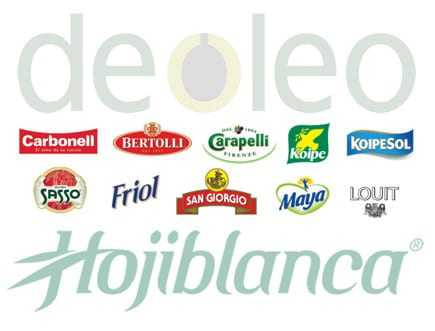
A new giant is set to enter the world olive oil arena now that the Deoleo-Hojiblanca merger has a green light from Spain’s competition watchdog.
“The best news for the Andalusian economy in a long time,” is how one Spanish journalist summarized approval for the deal between Deoleo, global leader in sales of bottled olive oil, and Hojiblanca, the biggest producer of extra virgin olive oil.
The National Competition Commission (CNC) announced this week it had approved the proposal after Deoleo (formerly SOS) made undertakings — such as not to share certain market-sensitive information — allaying its concerns about the deal’s anti-competitive impact.
Hojiblanca to join Bertolli, Carapelli and Carbonell in Deoleo stable
Deoleo, which already controls three of the world’s top four olive oil labels — Bertolli, Carapelli and Carbonell — will thus be allowed to also acquire the Hojiblanca extra virgin olive oil brand. And the huge Hojiblanca Cooperative Group — the umbrella for 95 cooperatives — will increase its stake in Deoleo to 10.3 percent and occupy two of 17 seats on its board.
Spanish news site El Diario said the merger would create “a conglomerate with dominant positions in the entire process, from production to packaging and retail.”
“That 55,000, mostly Andalusian, olive oil farmers, with more than 325,000ha and nearly 100 mills, grouped together in the Hojiblanca cooperative group and with a turnover of €544 million in 2012, will gain control in the Deoleo group, the world’s leading bottler, with 22 percent of the global market, and nearly €1 billion in turnover, is extraordinary,” it wrote.
Competition watchdog’s fears
In a press release, the CNC said its thorough investigation had sparked concerns the merger could have anti-competitive effects.
These included the possible exclusion of Deoleo’s downstream competitors, such as those who are currently supplied by Hojiblanca in its capacity as a source of bulk olive oil, as well as upstream ones, such as companies other than Hojiblanca that have until now been suppliers for Deoleo.
There was also a risk of coordination of activities between Deoleo and Hojiblanca, partly arising from Hojiblanca’s presence on the Deoleo board and the consequent risk of commercially sensitive information being shared between vertically-related competitors.
Deal approved after four key commitments made
But the CNC considered that these issues would be adequately addressed under commitments proposed by Deoleo on March 15.
The first is designed to avoid any de-facto limit on Hojiblanca’s competition in the branded (as opposed to store brand) olive oil market. It requires the removal of a clause in the agreement between the companies that would have seen Hojiblanca lose its right to two seats on Deoleo’s board if, after a three-year agreement not to compete, it held more than a 2 percent share of this market in Spain.
The second requires that Hojiblanca’s two representatives on Deoleo’s board of directors have no access to commercially sensitive information on Deoleo’s sales of packaged olive oil to third parties, or on Deoleo’s purchase of bulk olive oil, and abstain from votes relating to such matters. Similarly, no-one from Deoleo’s board can solicit commercially sensitive information from Hojiblanca on its bulk sales to other parties.
The third commitment provides that after three years have passed, the CNC will assess whether there has been any relevant change in the structure or regulation of the markets that justifies continuing or adapting the conditions for two more years.
The fourth relates to monitoring compliance with the commitments and includes the signing of a confidentiality agreement by the secretary to Deoleo’s board and submission of certain information to the CNC.
Deoleo says the deal will enhance the range and quality of its leading brands, while Hojiblanca says it will strengthen the global dominance of Spanish olive oil.






